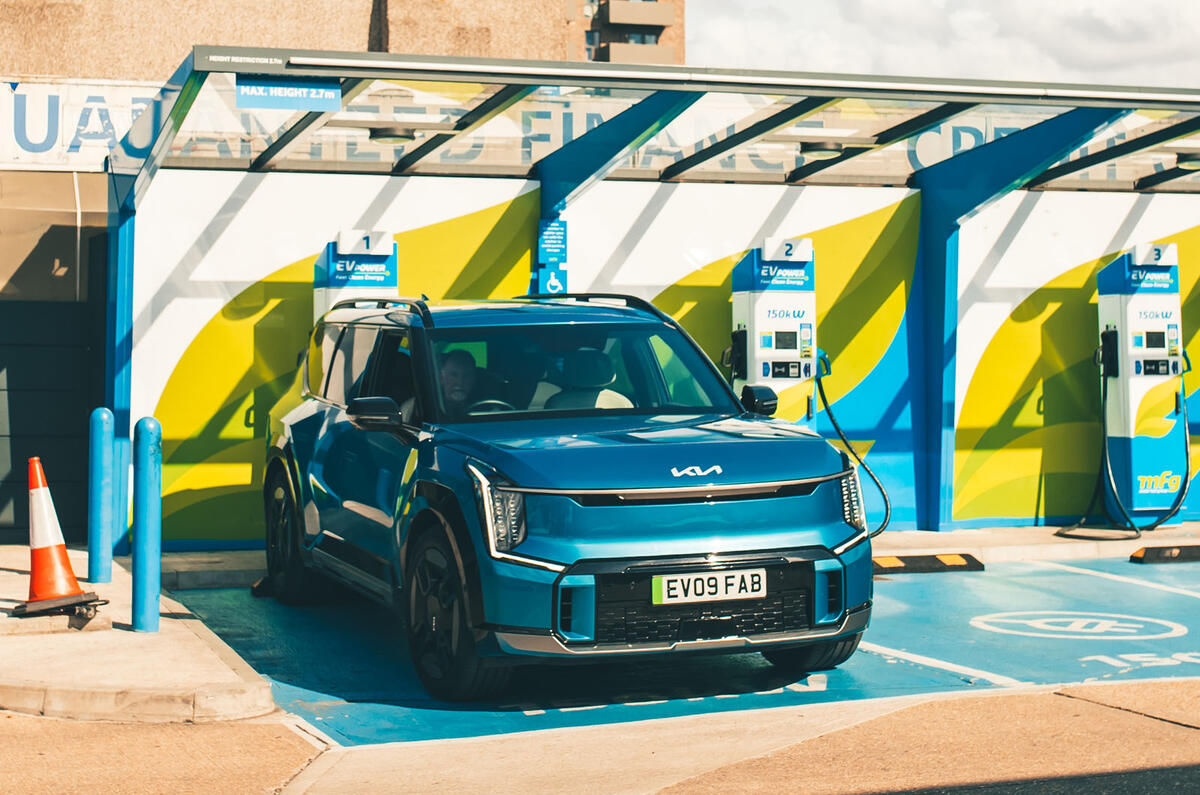Delays in connecting chargers to the National Grid are a "substantial bottleneck" for the growth of EV charging infrastructure, claims the UK's biggest charging body.
ChargeUK, whose members include BP Pulse, Gridserve and Ionity, says variations in working practices between the country's 14 distribution network operators (DNOs) - which own, maintain and operate the energy network - are often to blame.
"Varying standards and slow processes are a significant problem," said Jarrod Birch, ChargeUK's head of policy. "We need renewed collaboration and focus to speed things up".
There are currently more than 86,000 public charge points in the UK that vary from speeds of 3kW (slow) to 480kW (ultra-rapid).
Osprey, the UK's third-largest operator, with almost 1500 rapid and ultra-rapid chargers, expanded its network by 150% last year but believes it could have grown faster with better support from DNOs.
"There is enough power to connect most public charging projects to the grid," a spokesperson told Autocar. "The reason for time delays is simply personnel and process.
"The volume of public EV charger connections has increased sharply over the past few years, and it can take months for some DNOs to process applications and legals and schedule connections. Any part of the process, especially legal, that is not standardised across the DNOs adds time and delays".
Problems experienced by charger providers connecting to the grid were highlighted recently by Surrey County Council. It plans to install 2000 public EV chargers by February 2028 but by September had installed just 375. The council said one of the main issues has been getting power connections in place.
Among those affected by the delays are residents of Farnham. They had been expecting the installation of four charge points by January but work had still not started by October.
However, there is hope for energy firms and EV owners. Last November, national energy regulator Ofgem set out proposals to overhaul the system for getting new projects connected to the energy system.
Its review will analyse each stage of Britain's connections process to see where changes can be made to help approved projects connect faster.
"We are hopeful that Ofgem's end-to-end connections review, the next steps for which are expected soon, will spur new momentum so that we can get on with the job of deploying ahead of demand," said Birch.
The Energy Networks Association, which represents DNOs, claimed that ahead of the review's findings, it has improved network access and changed its connection charges to reduce the up-front cost of connecting to the grid.
A spokesperson said: "The UK has seen a 22% growth in public EV charging points over the last year. Network operators are working hard to make it better, faster and easier for installers".




Join the debate
Add your comment
Whenever I pass EV stations, there are always rows of charger bays lying empty. And that's assuming the ones with cars in the bay are using the charger and not just parked up.
Unless someone tackles the issue of crazy expensive public charging, then what's the point of rolling out more chargers?
I guess there are also empty pumps when you drive past a petrol station too though?
I completely agree about charging costs.
Absolutely rubbish. As someone that worked for a DNO installing supplies I know that OFGEM have strict rules on planning timescales with penalties if not met. However if cables have to go over third party land then it has to be negotiated and cannot be forced upon the land owner. This is quite often where delays come in. If charging companies want a quicker response just ask government to force land owners to comply like HS2. Would anyone want that scenario, no I thought not.